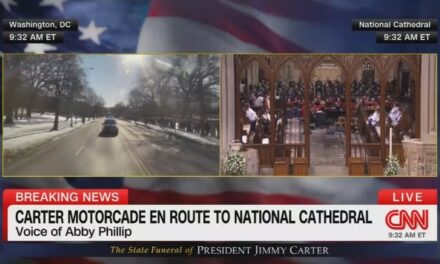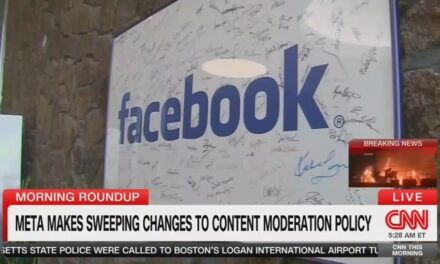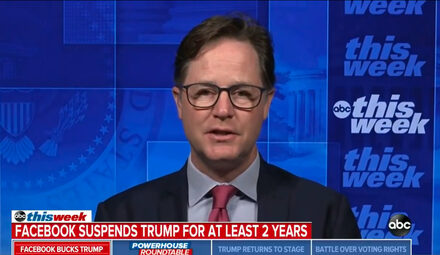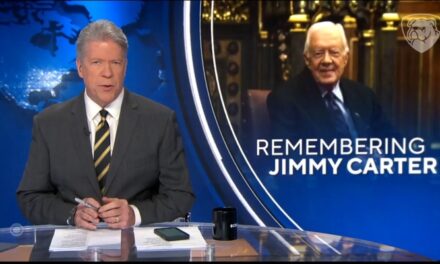We support our Publishers and Content Creators. You can view this story on their website by CLICKING HERE.
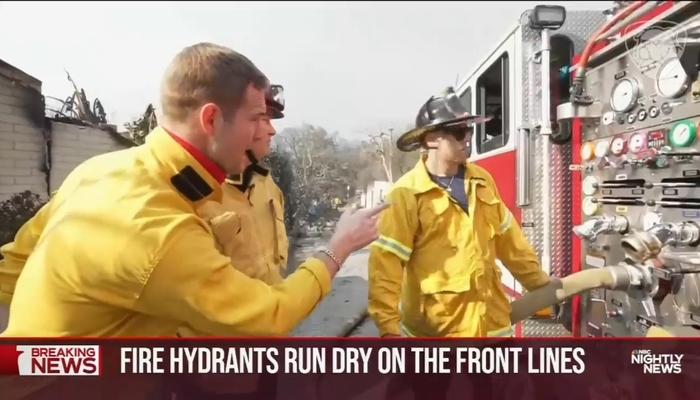
As the Los Angeles wildfires rage on, the corporate media are compelled to cover some of the issues that have emerged. But as we see with NBC’s coverage of the shortage of water for fire hydrants, there is a reluctance to cover underlying political incompetence.
Watch as the water shortage is treated as though it were a supernatural mystery:
MORGAN CHESKY: We joined Los Angeles Fire Captain Adam Van Gerpen in the Pacific Palisades.
ADAM VAN GERPEN: This hydrant has no- no water in it.
CHESKY: Where lack of water, critical to battling a still-active wildfire, frustrated crews. This one from San Francisco.
What should the water pressure be right now, ideally?
FIREFIGHTER: I mean, you want 50 to 80 as your ideal hydrant pressure.
CHESKY: And what have you got?
FIREFIGHTER: I’m bouncing between zero, 50, it’s- it’s not a consistent pressure.
CHESKY: As nearby hydrants failed and water pressure fell, firefighters above switching from offense to defense.
CHESKY: When you run out of water in that engine…
FIREFIGHTER: Not much we can do then. VIDEO SWIPE) We came out, this is our first job for the day.
CHESKY: Flames burning for precious minutes before any reinforcements could arrive.
FIREFIGHTER: Had we had water earlier on in the firefight, we probably could have stopped it from getting this big.
CHESKY: This is something we have not seen often but when the hydrants are dry, crews have to rely on these tanker trucks because the fire waits for no one.
Morgan Chesky’s reporting focused on the struggle of firefighters to get water into these burning areas before they are completely wiped out. But there was no focus on local officials, or on the ongoing debate over water management in California.
By omitting any mention of the underlying problems at the local and state level, the report seems to absolve officials who should otherwise be grilled by the media- and perhaps would have been if the elected officials in question were Republican.
To their credit, NBC did not attempt to Trumpwash the story, at least not yet. That is, they did not engage in the media practice of reporting on a controversial issue in such a manner so as to frame President-Elect Donald Trump’s statement on that issue as more scandalous than the issue itself.
As further details of the structural failures that aggravated the response to these fires become available, it remains to be seen whether NBC will continue to refrain from Trumpwashing the story and focus on the local failures.
Click “expand” to view the full transcript of the aforementioned report as aired on the NBC Nightly News on Thursday, January 9th, 2025:
LESTER HOLT: The task of fighting such a massive area of fire is immense. And as Morgan Chesky reports, the struggle for water is complicating the fight on the front lines.
MORGAN CHESKY: Tonight, a relentless firefight far from over. Front line crews facing challenges that only start with the flames.
What do we got going?
FIREFIGHTER: So what we have is the fire has already burned through here.
CHESKY: What we’re looking at right now could’ve been caused by a single ember.
FIREFIGHTER: One ember could’ve caused this.
CHESKY: We joined Los Angeles Fire Captain Adam Van Gerpen in the Pacific Palisades.
ADAM VAN GERPEN: This hydrant has no- no water in it.
CHESKY: Where lack of water, critical to battling a still-active wildfire, frustrated crews. This one from San Francisco.
What should the water pressure be right now, ideally?
FIREFIGHTER: I mean, you want 50 to 80 as your ideal hydrant pressure.
CHESKY: And what have you got?
FIREFIGHTER: I’m bouncing between zero, 50, it’s- it’s not a consistent pressure.
CHESKY: As nearby hydrants failed and water pressure fell, firefighters above switching from offense to defense.
CHESKY: When you run out of water in that engine…
FIREFIGHTER: Not much we can do then. VIDEO SWIPE) We came out, this is our first job for the day.
CHESKY: Flames burning for precious minutes before any reinforcements could arrive.
FIREFIGHTER: Had we had water earlier on in the firefight, we probably could have stopped it from getting this big.
CHESKY: This is something we have not seen often but when the hydrants are dry, crews have to rely on these tanker trucks because the fire waits for no one.
The situation a familiar one for the captain, a 25-year veteran of the LAFD. Mere blocks away, another call coming in for another home up in flames.
If we had any wind right now, completely different firefight?
VAN GERPEN: 100% different firefight.
CHESKY: Just feet away, a million dollar view burned beyond recognition.
VAN GERPEN: There’s not even a single home from this entire viewpoint that we can see that has survived.
CHESKY: If you had officials in front of you right now, what would you ask for to have had a proper firefight here?
VAN GERPEN: More firefighters, more fire hydrants, more air dropping capabilities. We need more of everything.
CHESKY: Tonight, these crews doing whatever they can with whatever they have. Fighting a historic disaster head on.
HOLT And Morgan, this all coming out of a red flag warning. Do those remain in effect?
CHESKY: Yeah, Lester, they absolutely do. And that’s one of the big concerns of the crew we embedded with today. They tell us that one ember can travel up to two miles. And that is why until that red flag warning expires at 6PM on Friday, everyone needs to stay on guard because a potential fire could pop up almost anywhere. Lester.
HOLT: Morgan Chesky, thank you.

 Conservative
Conservative  Search
Search Trending
Trending Current News
Current News 